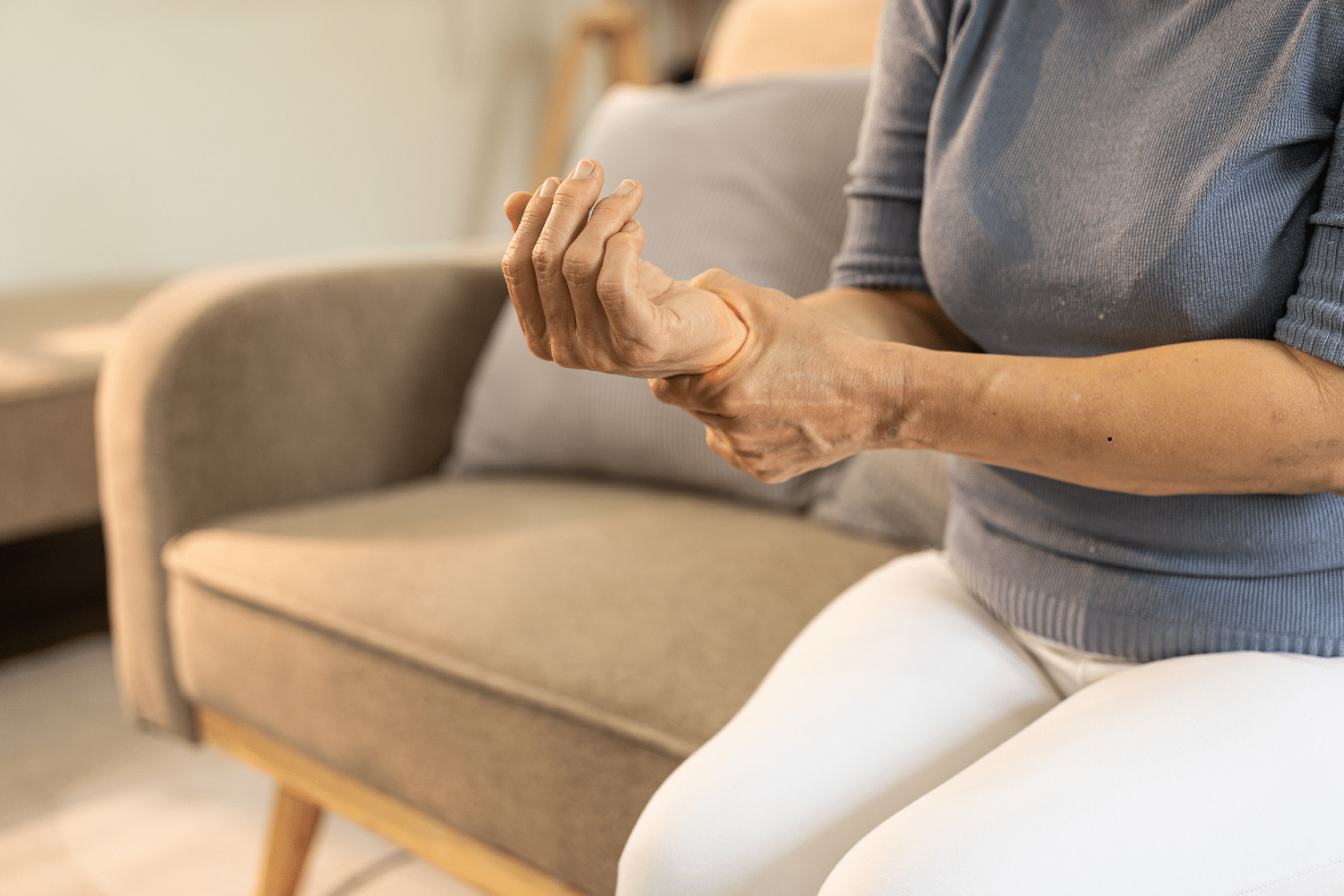Good sleep hygiene is essential for anyone looking to improve their nighttime rest. In this article, you’ll learn straightforward strategies to refine your sleeping routines and positively impact your health, energy, and mood—all backed by evidence and without the padding.
Key Takeaways
- Establishing and maintaining a consistent sleep schedule aligns with your body’s natural rhythms and significantly improves your energy and alertness.
- Creating a tranquil and comfortable sleep environment, including optimal temperature, reduced noise and light, and a supportive mattress, is essential for high-quality rest.
- When sleep issues persist beyond lifestyle adjustments, seeking professional help from experts in sleep medicine is critical to address any underlying sleep disorders.
The Fundamentals of Sleep Hygiene

Sleep hygiene is about more than just keeping your bedroom clean. It’s a term that encompasses all the practices, habits, and environmental factors that contribute to quality sleep. Just like oral or personal hygiene, sleep hygiene is vital for your physical and mental health, helping you stay energized, regulate your mood, and keep your cognitive functions at their best.
It’s time to give your sleep the importance it deserves and learn how to improve your sleep!
The definition of sleep hygiene
When we talk about sleep hygiene, we’re referring to a range of healthy sleep habits that contribute to better sleep. These include habits and behaviors related to your bedtime routine, your lifestyle, and even your sleep environment. Every element that can influence your sleep quality, from the temperature in your bedroom to the time you go to bed, is part of sleep hygiene. On the other hand, poor sleep hygiene can negatively impact your sleep quality and overall well-being.
By modifying these elements, you can enhance your sleep quality and wake up feeling refreshed every morning.
The significance of good sleep hygiene
Good sleep hygiene is like a key that unlocks numerous health benefits. When you consistently adhere to healthy sleep habits, you can enjoy:
- Increased energy
- Better mood regulation
- A stronger immune system
- Lower stress levels
- Enhanced cognitive function
- Improved blood sugar control
It’s important to note, though, that benefits come gradually and not instantly.
So, if you’ve just started working on improving your sleep hygiene, be patient. The rewards are worth the wait!
Establishing a Consistent Sleep Schedule

One of the cornerstones of good sleep hygiene is maintaining a consistent sleep schedule. This means:
- Going to bed and waking up at the same time every day, even on weekends
- Aligning your sleep schedule with your body’s natural circadian rhythms
- Making it easier for you to fall asleep and wake up
- Helping you feel more alert during the day and sleepy at night
A consistent sleep schedule is key to getting a good night’s sleep and feeling refreshed and energized during the day.
Let’s dive deeper into this topic and explore how to set sleep and wake times and adapt to changes in schedule.
Setting sleep and wake times
The National Sleep Foundation recommends that adults aim for seven to nine hours of sleep. But how do you determine what time to go to bed and what time to wake up? It’s not as simple as counting back from your wake-up time. You need to consider factors such as your age, health conditions, and individual sleep requirements.
Once you’ve determined your ideal bedtime and wake-up time, stick to them. If you’re trying to adjust your sleep schedule, do it gradually, shifting your sleep and wake times by 15-minute increments daily until you reach your desired times.
Adapting to changes in schedule
Changes in schedule, such as those caused by shift work or travel, can disrupt your sleep patterns and potentially lead to sleep deprivation. But don’t worry, there are strategies to manage these changes without sacrificing your sleep quality. If you’re a shift worker, small doses of caffeine throughout the night and a quiet, dark sleeping environment during the day can help. If you’re traveling, adjust your circadian rhythm to the new time zone by seeking bright light in the morning and avoiding it in the evening.
And no matter what changes you face, maintaining consistent wake times is crucial. A regular sleep routine can make wakefulness in the mornings simpler and sleep at night more satisfying.
Creating a Sleep-Inducing Environment

Your sleep environment plays a crucial role in how well you sleep. Imagine trying to sleep in a noisy, brightly lit room – sounds challenging, right? For quality sleep, it’s essential to create a sleep-inducing environment. This means keeping your bedroom quiet, dark, and at a comfortable temperature.
Removing distractions, especially electronic devices like TVs, computers, and smartphones, can also contribute to a calming bedtime routine. Let’s delve deeper into how you can optimize your bedroom for better sleep.
Optimizing bedroom temperature
The temperature of your bedroom can greatly impact your sleep quality. Experts recommend setting your bedroom temperature between 60 to 67 degrees Fahrenheit (15.6 to 19.4 degrees Celsius) for optimal sleep. A cooler room helps decrease your body temperature, a key part of the body’s sleep onset mechanism.
But keep in mind, the optimal temperature might vary slightly depending on personal preference and age. For example, older adults may find a slightly warmer room, between 68 to 77 °F, more comfortable for sleep.
Reducing noise and light distractions
Noise and light can be major sleep-disruptors. To create a sleep-friendly environment, consider using:
- Blackout curtains or shades to block out distracting light
- Earplugs or noise-canceling headphones to reduce noise
- Soundproofing wall decorations or acoustic tiles to further minimize noise
These measures can help create a peaceful and restful sleep environment.
You can also use a white noise machine to mask disruptive sounds with a consistent auditory backdrop. These steps can go a long way in ensuring you get that peaceful, uninterrupted sleep you deserve.
Ensuring a comfortable bed
A comfortable bed is an indispensable part of a sleep-friendly environment. Here are some key elements to consider:
- A supportive mattress that aids in proper back alignment, pressure relief, and temperature regulation.
- Appropriate pillows that support your head and neck and promote healthy spinal alignment.
- Breathable sheets made from natural fibers like cotton or linen that offer comfort and help regulate your body temperature during sleep.
Investing in these elements can enhance your sleep comfort and contribute to a better night’s rest.
Remember, a comfortable bed is more than just a luxury; it’s a necessity for good sleep hygiene and ensuring a good night’s sleep.
Developing Healthy Bedtime Habits

Your bedtime routine can significantly influence your sleep quality. Healthy bedtime habits, like establishing a calming routine, limiting screen time, and avoiding stimulants and heavy meals, can set the stage for a good night’s sleep. Remember, it’s not just about what you do right before bed; daytime behaviors, including physical activity, can also impact your sleep.
Let’s explore these healthy habits in more detail.
Implementing a calming bedtime routine
Establishing a calming bedtime routine is key to winding down from the day and preparing your body for sleep. This routine should include tranquil pre-sleep activities that signal to your brain that it’s time to relax and go to sleep. This could be reading a book, listening to calm music, or even practicing relaxation exercises. The key is consistency.
By performing these activities regularly, you create a powerful signal for sleep, helping you fall asleep faster and enjoy better sleep quality. However, neglecting these activities might make it harder to fall asleep.
Limiting screen time before bed
In our technology-driven world, it’s common to use electronic devices like smartphones or laptops right up until bedtime. But did you know that this habit could be sabotaging your sleep? The blue light emitted by electronic devices can interfere with your body’s production of melatonin, a hormone that regulates sleep.
To protect your sleep, try to avoid using electronic devices for at least an hour before bed, and instead, expose yourself to natural light during the day. If you absolutely must use them, turn on the red-light filter to minimize blue light exposure.
Avoiding stimulants and heavy meals
What you eat and drink can also affect your sleep. Consuming large meals, caffeine, or alcohol before bed can disrupt sleep. They can cause discomfort, indigestion, or frequent bathroom trips, all of which can interrupt your sleep.
Instead, opt for a light snack before bed to prevent hunger pangs from disturbing your sleep. Remember, a healthy diet goes hand in hand with healthy sleep habits!
Incorporating Relaxation Techniques

Relaxation techniques are valuable tools in your sleep hygiene toolkit. They can help reduce stress and calm your mind, preparing your body for sleep. Techniques like deep breathing exercises, progressive muscle relaxation, and guided imagery can be particularly helpful.
Let’s dig deeper into these techniques and how you can incorporate them into your bedtime routine.
Deep breathing exercises
Deep breathing exercises can be a powerful relaxation tool. By focusing on your breath, you can activate your body’s relaxation response, slowing down your heart rate and promoting feelings of calm. Deep breathing can help reduce hyper-arousal, which is often linked to insomnia, and improve sleep onset latency, which is the time it takes to fall asleep.
Simply spend five minutes before bed slowly breathing in and out to reap the benefits.
Progressive muscle relaxation
Progressive muscle relaxation is another effective technique for promoting sleep. It involves systematically tensing and then releasing different muscle groups in your body, helping you release physical tension and become more aware of your body.
Starting from your head and moving down to your feet, this process can help reduce stress and prepare your body for sleep.
Guided imagery
Guided imagery is a relaxation technique that involves visualizing calm, peaceful scenes. This practice can help quiet your mind, redirecting it from stressful thoughts to soothing images.
Whether you’re visualizing a peaceful vacation or a protective light, guided imagery can be a valuable tool in your bedtime routine, especially after an emotionally distressing day.
Seeking Professional Help for Sleep Problems
Sometimes, despite your best efforts to maintain good sleep hygiene, sleep problems may persist. If you find yourself struggling with sleep issues for more than three months, it may be time to seek professional help. Sleep disorders can impact your daily life and overall health, so it’s important to address them promptly.
Let’s explore some common signs of sleep disorders and how to find a sleep medicine expert.
Identifying signs of sleep disorders
Knowing the signs of sleep disorders can help you recognize when it’s time to seek professional help. Common symptoms include:
- Excessive daytime sleepiness
- Difficulty falling asleep
- Frequent awakenings
- Persistent snoring
- Waking up gasping or choking
- An uncontrollable urge to move when relaxing
If you’re experiencing any of these symptoms, it’s a good idea to consult a sleep medicine expert.
Finding a sleep medicine expert
When it comes to your sleep health, you want to ensure you’re in the best hands. A board-certified sleep medicine expert, such as a neurologist, pulmonologist, or psychiatrist with additional training in sleep medicine, can provide the expertise you need. Certain groups, like women, older adults, or those with a family history of sleep disorders, might need specialized care more frequently.
And if treatments for sleep apnea or snoring haven’t been successful, it may be time to consider a sleep surgeon. Remember, help is available, and you don’t have to struggle with sleep problems alone.
Summary
Sleep hygiene is a vital aspect of our health and well-being, and it’s never too late to start improving yours. From establishing a consistent sleep schedule to creating a sleep-inducing environment, developing healthy bedtime habits, incorporating relaxation techniques, and seeking professional help when needed, there are many steps you can take to enhance sleep quality. Remember, good sleep hygiene is not just about one night; it’s about a lifetime of restful nights. Here’s to adopting healthier sleep habits and waking up refreshed every day!
Frequently Asked Questions
Sleep hygiene includes all the practices, habits, and environmental factors that contribute to quality sleep, such as bedtime routine, lifestyle, and sleep environment. Good sleep hygiene is important for improving the quality and duration of sleep.
A consistent sleep schedule is important because it helps maintain your body’s internal clock, making it easier for you to fall asleep, wake up, and feel alert during the day and sleepy at night. It’s essential for overall well-being.
Make your bedroom conducive to sleep by keeping it quiet, dark, and at a comfortable temperature. Use blackout curtains, earplugs, and set the temperature between 60 to 67 degrees Fahrenheit for optimal sleep. A good night’s sleep leads to a productive day!
Establishing a calming bedtime routine, limiting screen time, and avoiding stimulants and heavy meals before bed are all healthy bedtime habits that can help improve your sleep quality and overall well-being. Try activities like reading a book, listening to calm music, or practicing relaxation exercises to wind down before bed.
If your sleep problems persist for more than three months and start to impact your daily life, seek professional help to address potential sleep disorders and improve your overall well-being. Seeking help early can lead to effective solutions for better sleep.







